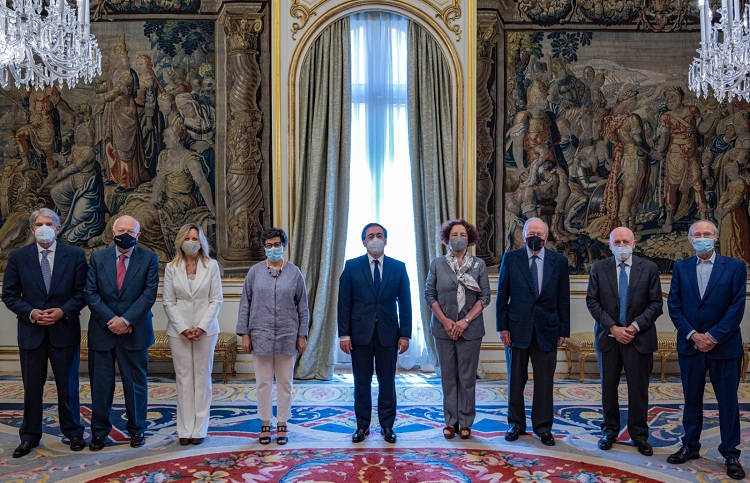The Diplomat
The President of the Partido Popular, Pablo Casado, announced yesterday that he will ask the European Union to recover the Common Position on Cuba, an initiative that was adopted at the end of 1996 at the behest of José María Aznar’s government and remained in force for more than twenty years.
Casado made this statement during a meeting with representatives of Cuban civil society in Madrid, to “demand freedom and demand that Sánchez recognise Cuba as a dictatorship”, the PP said in a statement.
The statement said that “given the inaction” of the president of the government, Pedro Sánchez, the PP “will ask the European Union to recover the common position to promote democracy and punish the regime’s leaders”.
The PP recalls that it has presented an initiative in Congress and in the European Parliament to request that European social democracy as a whole recognise Cuba as a dictatorship, that sanctions be established against the regime’s leaders and that measures be promoted to favour the transition to democracy.
In addition, the PP reported that Casado, as vice-president of the IDC, will promote the continued involvement of the organisation chaired by Andrés Pastrana in Cuba’s cause to achieve a transition to democracy.
The meeting with the leader of the Popular Party was attended by Yunier Suárez, promoter of Cuba Decide in Spain; Ismely Álvarez, actor and activist in social networks against the communist regime; Lázaro Mireles, secretary of Communications of #Somos+; Masiel Rubio Hernández, editor and proofreader of the book distributor Lantia; Rigoberto Luis Carceller Ibarra, founder of the NGO Cuba Democracia Ya; Maideli Campo, of the Cuba Decide Movement; Carmen Luisa Fernández, representative of the Kubacentzat Platform of the Basque Country and Mario Luis Reyes Betancourt, journalist of the Diario de Cuba.
Along with Casado, also taking part in the meeting on behalf of the PP were the spokesperson of the Popular Group in Congress, Cuca Gamarra; the secretary for International Relations and spokesperson for Foreign Affairs, Valentina Martínez, and the deputy spokesperson responsible for Foreign Affairs, Pablo Hispán.






